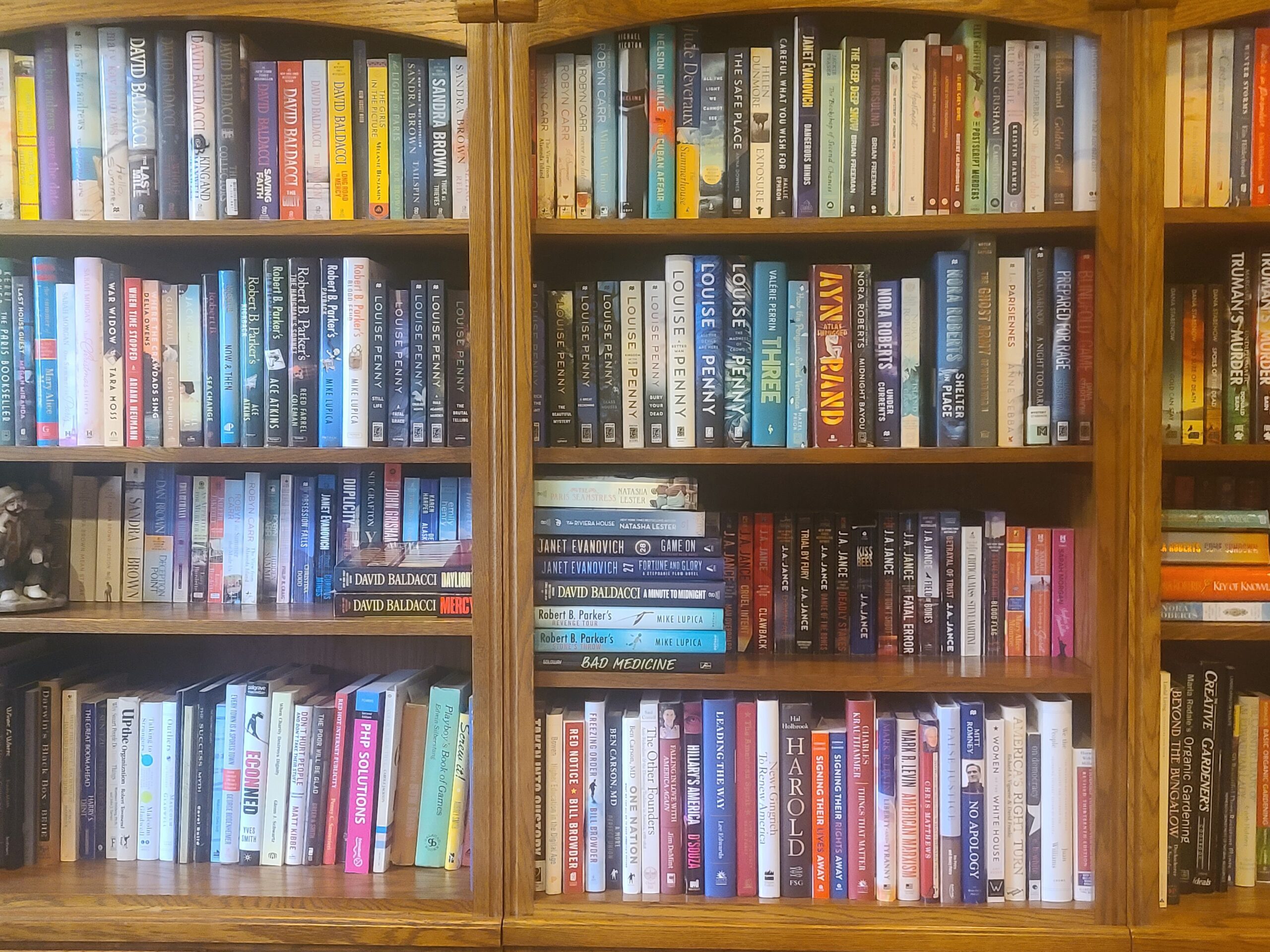One of the scariest things happening this month of Halloween is the censorship of books.
When a group of people join together for the purpose of banning books because they don’t agree with or approve of the content, we should all be alarmed. And very much afraid of what could come next.
More than 50 organized advocacy groups exist in the U.S. with the mission to ban books. 50! That’s a frightening number.
During the 2021 school year, more than 1,600 books were banned from school libraries.
The American Library Association recently issued a report that another 1,681 titles were selected to be restricted or banned between January and August of this year.
Why isn’t this front page news? Why isn’t this getting attention on social media? Why aren’t mainstream media and cable news networks talking about this? Why aren’t TV talk shows devoting time to this instead of promoting the opinions and careers of celebrities?
When I was in high school one of my reading assignments was To Kill a Mockingbird by Harper Lee.
Having grown up in an all white small town in central PA it was my first exposure to racism in a way that was far beyond what I saw on TV news. It opened my eyes and my mind about an existence totally alien to me.
What’s more important is that if it hadn’t been for my school, I might have missed out on one of the most compelling books ever written.
In 1961 To Kill a Mockingbird won the Pulitzer Prize for fiction.
Earlier this year A Seattle area school board voted to ban that book. About the same time a Tennessee school district banned it, as did a school district in Utah, and the Unified School District in Burbank, California. It was to be assigned reading at the senior high level. It was banned because it was felt to promote tolerance of racism and it contained profanity.
I don’t understand where that perspective comes from. If anything, To Kill a Mockingbird shows us the compelling reasons to NOT tolerate racism. And profanity already permeates teen entertainment.
Many of the banned books expose realities and consequences of slavery, discrimination, and bigotry. Books like The Bluest Eye by Toni Morrison. This was Morrison’s first novel, written in 1970. Not only does it expose racism, it also spotlights other abhorrent behaviors such as incest and child molestation.
Yes, these are ugly topics, but they are topics that shouldn’t be ignored. Ignoring them or not being informed about them won’t make society better.
Some banned books celebrate the accomplishments of people from the LGBTQ community and their contributions to culture, society, and the arts, such as Queer, There, and Everywhere by Sara Prager. This is Prager’s first book … not a novel, it’s non-fiction. True stories about 23 people throughout history, some famous, others never heard of, who have been part of our culture and heritage in ways we never knew. This is not information to ban; it’s information to honor.
Alan Turing is featured in this book. He’s considered to be the Father of Theoretical Computer Science and Artificial Intelligence. He played a crucial role in helping the allies win World War II by cracking the Nazi code which saved millions of lives. But after the war his discrimination, prosecution, and inhumane treatments for being a gay man led him to commit suicide in 1954. In 2013 Queen Elizabeth II issued an official posthumous pardon to Turing. This is history we need to know; not to be banned.
Books bring us knowledge. They entertain us. They allow us to personally get familiar with people, places and situations we would never encounter in our lives. We experience history through books. We expose our minds to new thoughts, ideas, perspectives, and solutions. Books let us have new experiences and insights into other points-of-view.
Books are the embodiment of the right to free speech. No one should ever have the right to decide what I, or you, or anyone, can and cannot read.
Current book banning activism stems from assigned reading by teachers of books that expose children to information at ages where they aren’t intellectually capable of absorbing and understanding the nuances of complex issues and ideas. I agree that reading assignments and topics assigned to students must be at age-appropriate levels. Reading pedagogy in schools must take into account the reading comprehension abilities of different age groups.
If that’s done parents should not be afraid their children can’t handle knowledge about things that are different than what they are taught at home. They should look forward to intelligent discussions with them about complex subjects. Parents have tremendous influence on their children. But that influence should never be secured by isolating them from other points-of-view that encourage critical thinking.
This is not just activism by people of conservative far right leanings. People with liberal far left ideologies call for banning books too. They had six Dr. Seuss books banned citing them as racist and insensitive. In Maoist China in 1965 the Dr. Seuss book Green Eggs and Ham was banned for showing Marxism in a bad light. I read that book to my son when he was young and never once thought it was about Marxism!
It’s scary to think we are heading down the same path as Communist China. Freedom to share our thoughts, experiences, creativity, and ideas in books, even those we disagree with and those that offend us, is a right we cannot afford to lose.
“The more you read, the more things you will know. The more that you learn, the more places you’ll go.”
Dr. Seuss
If you enjoyed this blog and know someone else who would enjoy it, please share it.

